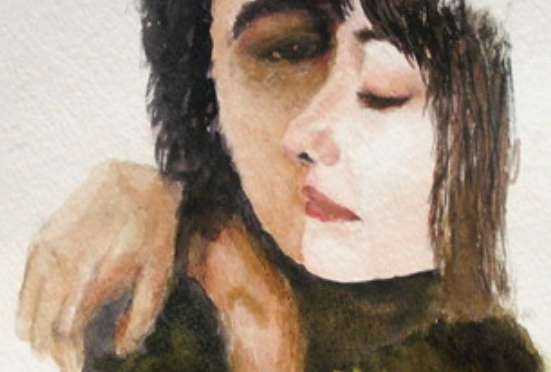Read next:
The Most Important Article on Elephant, Ever: Maitri.
~
I’m both a teacher and a student, and one doesn’t outrank the other.
It doesn’t matter how often spiritual leaders reiterate the message to be kind, loving, and compassionate. I was reminded of this not through a teacher, but through a perfectly orchestrated technical error.
The student in me today found herself being hurt by someone she cared for deeply.
The hurt had occurred some time ago, and we hadn’t spoken in months. Often, I think of him—but never that much that I feel the need to reach out and see how he is doing. But today, he did.
Through time and space, the message arrived at its intended destination. Seeing his name gave me chills, not knowing how to react and feeling all kinds of emotions rising to the surface.
I read the word on the screen: “Hi.” Is that all he had to say for himself?
A thousand words and thoughts were spiraling through my mind at that moment, and I didn’t know which ones to pick, which words would form the perfect sentence that would convey exactly how I was feeling at this moment.
How does one express oneself to justify the deep wound that has cut straight through the cords of love? I cared for you, and you meant the world to me.
This is not the first time he had pushed me away. Hurt my feelings. Why reach out today?
I could feel my temperature slowly rising. Not my actual temperature, but my etheric body temperature. The whole of my being was vibrating faster than usual, as if I just touched a live electrical component, sending shock waves through every muscle and affecting my nervous system.
I could feel my chest expanding as I took a deep breath, wiggling and moving my body left to right to get comfortable in the chair that I was sitting in. Straightening my back to ensure that I was getting the right posture and body language to match the words to follow. If I decided to reply.
I was thinking of the most appropriate way to react and respond, but at the same time not knowing how to react or respond.
Aim: “Stay polite,” I quietly muttered to myself.
My fingers automatically started typing and hitting the letters on the keypad, spelling out the few words that I thought would be polite and fall within my spiritual values. It was just enough words to keep it short, professional, and not too personal.
After typing the first two words I had in mind, I took a moment to look at the screen and…“ho p o n.” That’s not what I had in mind. It meant to read “How can”…ending the sentence with “help you.” “How can I help you?”
I took my hands off the keyboard and examined this odd-looking word the computer decided to spell on my behalf.
Is a glitch really a glitch? The computer itself had a message for me.
What seemed like garble quickly became an all too familiar word that reminded me of the importance of forgiveness, instead of the anger and frustration of past events. “Ho p o n.”
“Ho’oponopono”
I am sorry
Please forgive me
I love you
and thank you
That is what “Ho’oponopono” means.
It was within this moment that I was reminded to say, “I love you, I am sorry, thank you, and forgive me.” It also reminded me of the compassion and love I hold for all things and all beings.
Ho’oponopono is a powerful Hawaiian saying and it is often sung.
It means that you are sorry even if you did nothing wrong. Say it anyway. Say, “I love you,” even though you may not love all parties involved. Through love, you will find forgiveness—forgiving all those who have caused you harm, have hurt you, or caused you pain. To heal is often the most difficult part of our journey. Forgiving that individual also means you are forgiving yourself for all that transpired.
Last but not least, say “thank you” for the experience. Nothing is ever lost or wasted, and there are lessons to be learned within each experience as our soul, awareness, and knowledge grow within the many facets of life.
~
You’ll enjoy these reads:
How to Apply the Buddha’s Metta (Loving-kindness) Sutta in Everyday Life.
“Basic Goodness is our Human Nature.”
~












Read 34 comments and reply